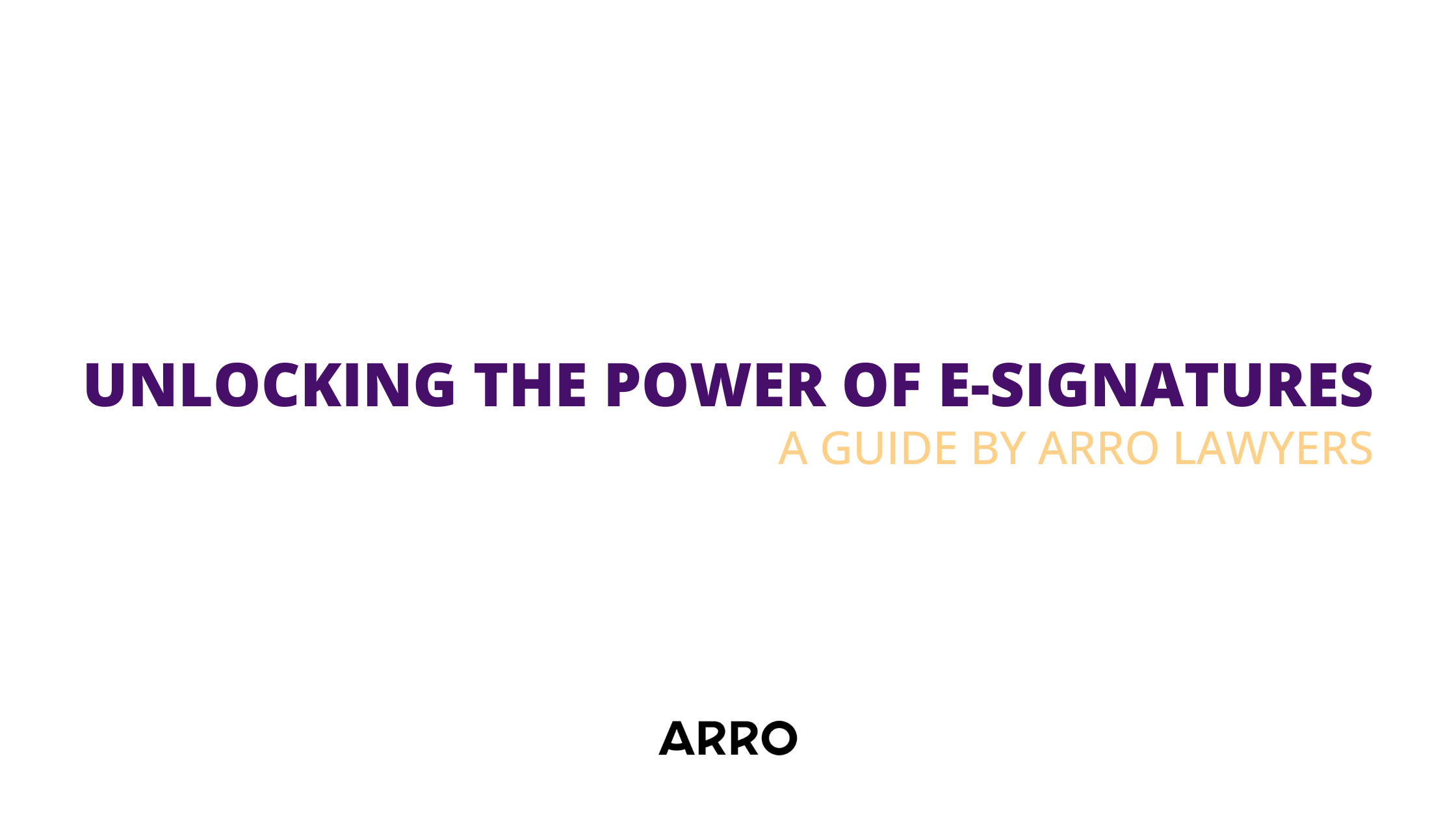In the fast-paced world of digital commerce, the concept of signing commercial documents electronically has become the norm. Electronic signatures, or e-signatures, have gained immense popularity, especially in recent times, thanks to the global shift towards remote work triggered by the pandemic. With tools like Docusign, individuals and businesses can now sign documents instantaneously, even when parties are located in different corners of the world. In this blog post, we delve into the world of electronic signatures, their validity, and the rules governing their usage.
Understanding E-Signatures
When you envision signing a document, the image of using a pen to inscribe your name on a paper contract likely comes to mind. An e-signature essentially serves the same purpose, but in a digital format. It enables you to sign your contract using your computer, smartphone, tablet, or any other electronic device. The Electronic Transactions Act 1999 (Cth) empowers the use of e-signatures for the remote execution of legal documents, ensuring they are not deemed invalid due to their digital nature.
Ensuring Validity
While the convenience of electronically executing documents from the comfort of your office chair is enticing, questions regarding the validity of e-signatures often arise. To address these concerns, the Electronic Transactions Act lays out specific requirements that must be met for an electronic signature to be considered valid in Australia. These requirements include:
- Identification and Intention: The person electronically signing the document must use a method to identify themselves and clearly indicate their intention to sign.
- Reliability: The method used for identifying the signer must be as reliable as necessary for the purpose for which the electronic communication was generated.
- Consent: The person signing must provide their consent to the use of electronic communication for the document in question.
Meeting these minimum standards ensures that the document electronically signed is legally binding in Australia.
Remote Witnesses
Certain documents, such as Wills, Powers of Attorney, Statutory Declarations, and Affidavits, require the presence of a witness. In the age of remote work and digital interactions, these witnesses can now participate in the process through audio-visual links, like Zoom, to witness the signing or administer oaths and affirmations remotely. However, similar to electronically signed documents, strict rules govern the proper conduct of witnessing a signature online to maintain the document’s validity.
If you find yourself in a situation where you need to electronically sign important documents or require remote witnesses, it’s crucial to adhere to these guidelines meticulously. Arro Lawyers is here to provide expert guidance and support, ensuring that your legal documents are executed flawlessly and remain legally valid.
Don’t hesitate to reach out to our Melbourne-based law firm if you have any questions or concerns regarding the use of electronic signatures or remote witnessing. Our team of experienced lawyers is here to assist you and provide clarity on the ever-evolving landscape of digital commerce and legal practices. Trust Arro Lawyers to navigate the complexities of the law, so you can focus on what matters most – your business.




